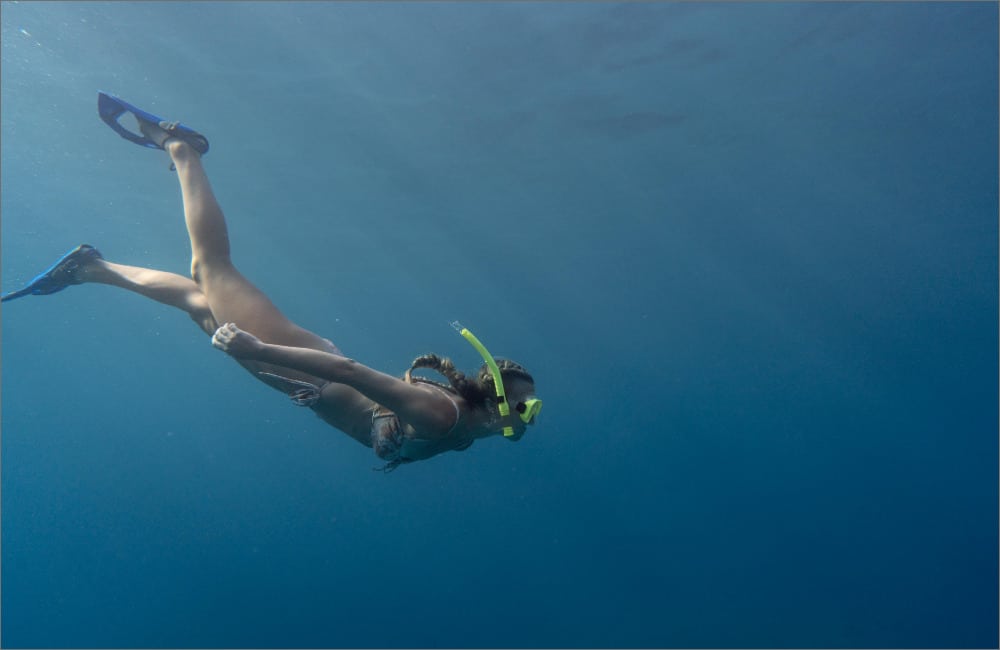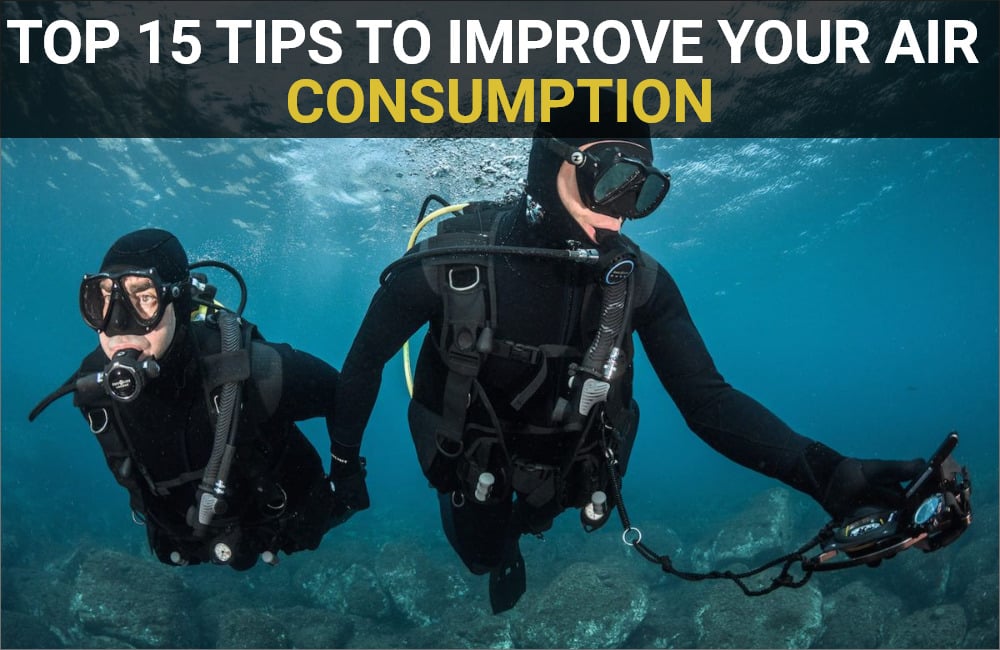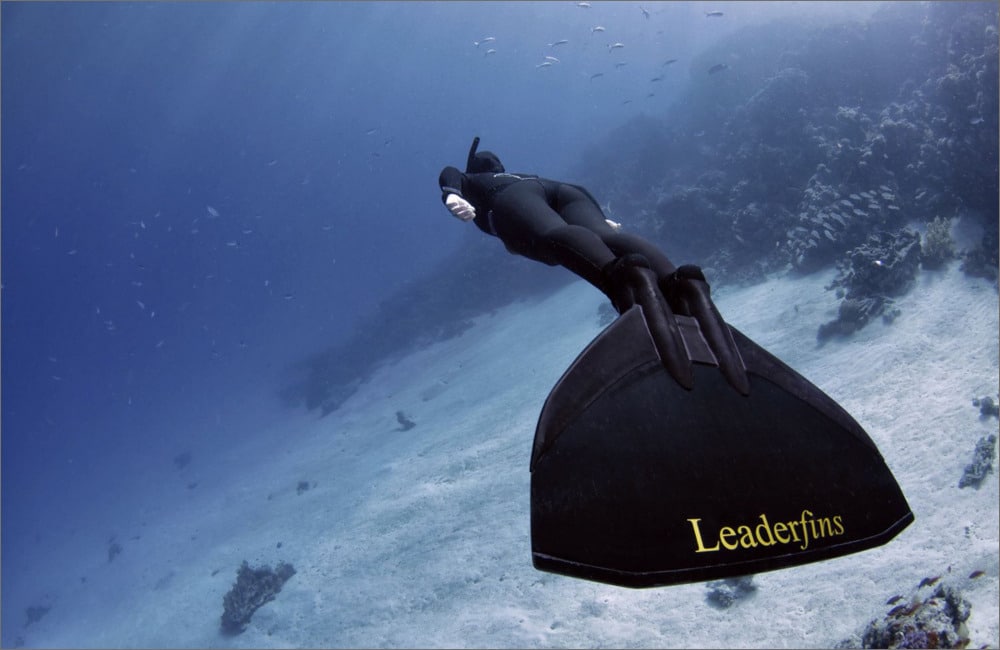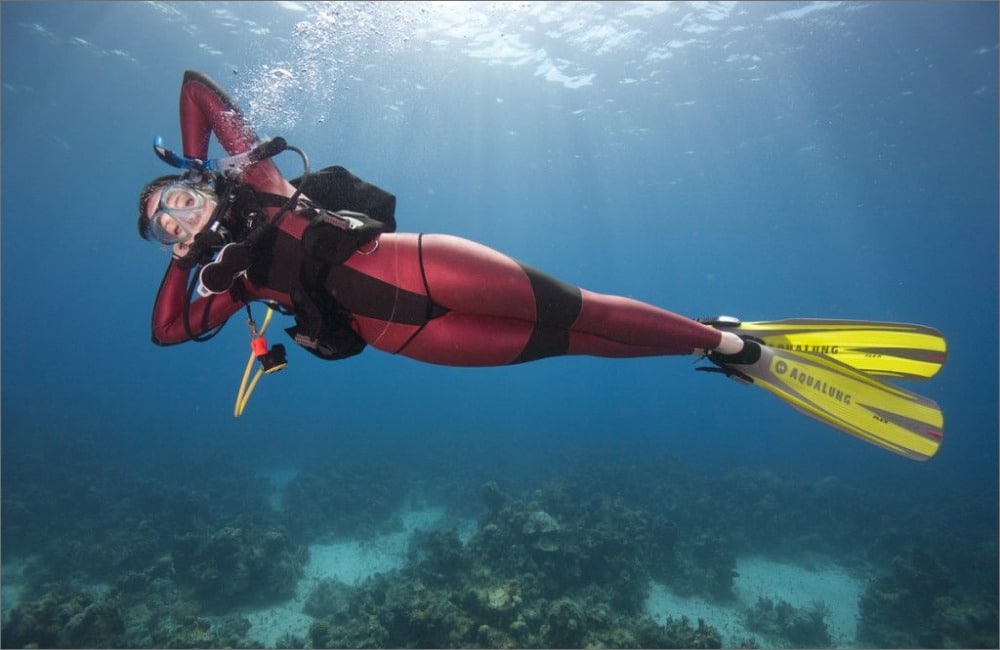Blog
Top 15 Tips to Improve Your Air Consumption
How do you increase your air consumption while diving or snorkeling? Having a good air consumption technique is critical when looking to add some extra distance and time underwater.
For those trying to improve their performance in the water, here is a comprehensive list of fifteen tips for improving your air intake. These tried-and-tested techniques will help divers maximize their dive times while consuming less oxygen from their scuba tanks.
With this knowledge, you’ll become an efficient diver and learn new methods for using more breathable oxygen during dives. With these helpful tips to Improve Your Air Consumption, you’ll soon be easily breathing no matter your experience level.
1. Maintain Proper Buoyancy
Exploring the underwater world is an experience unlike any other, but running out of air too soon can quickly end the adventure. One essential factor in optimizing your dive time is maintaining proper buoyancy.
With reasonable buoyancy control, you can reduce drag and conserve energy – meaning you’ll use less air and be able to stay down longer. Plus, achieving neutral buoyancy allows you to hover in place with ease, making it easier to snap that perfect underwater photo or get up close and personal with marine life
2. Relax and Breathe Slowly
Breathing is one of the most essential functions of our body. Regarding any physical activity, breathing plays a crucial role in optimizing performance. With the proper breathing techniques, you can improve your air consumption and alleviate stress.
Relaxing and breathing slowly helps increase the amount of oxygen you inhale and allows for better carbon dioxide exchange. Remember, efficient breathing can significantly affect how you feel physically and mentally. Consider integrating slow breathing exercises into your daily routine and feel the benefits quickly.
3. Use Fins Efficiently
As a scuba diver, one of the biggest challenges is managing your air consumption. It can be frustrating to cut a dive short because you’re running low on air. However, there are ways to improve your air consumption, and one of the key factors is how efficiently you use your fins.
By using proper finning techniques, you can reduce drag and move through the water more efficiently, ultimately using less air. Understanding the physics of underwater movement and practicing good technique can make a world of difference in your air consumption and dive experience. So, next time you hit the water, think about maximizing the power of your fins to improve your dive and extend your bottom time.
4. Streamline Your Gea
When it comes to diving, one of the key factors that can make or break your experience is your air consumption. Of course, there are many factors that can affect how much air you use during a dive (like depth, exertion level, and more).
But one thing that many divers overlook is their gear. If your gear isn’t streamlined and tailored to your body, you might be using more air than you need to. By taking the time to adjust your gear and make sure everything fits well, you can significantly improve your air consumption and enjoy longer more comfortable dives.
5. Master Your Trim
Diving is a sport that can take you to the depths of the ocean and allow you to explore the wonders that lie beneath the surface. However, without proper preparation and technique, it can also be dangerous. One key factor that can make a significant difference in your diving experience is mastering your trim.
Trim is the position of your body in the water, and this can have a significant impact on your air consumption. By adjusting your trim, you can reduce drag and move more efficiently through the water, which will help you use less air and stay underwater longer. With this small adjustment, you can take your diving to the next level and truly enjoy the beauty that lies beneath the surface.
6. Plan Your Dive
As you slowly descend into the deep blue sea, you can feel your excitement building. You are surrounded by marine life, vibrant coral reefs, and crystal-clear waters. Suddenly, you realize that your air consumption is slightly off, and you might not be able to stay underwater as long as you had hoped.
Planning your dive beforehand can greatly improve your air consumption, leading to longer and more enjoyable dives. Consider factors such as depth, dive site conditions, equipment, and your own physical capabilities. Take a few deep breaths and dive into a world of adventure, knowing that you have planned for a successful and sustainable underwater experience.
7. Stay Warm
As winter approaches, it’s important to focus on keeping warm to improve your air consumption when performing physical activities. When you’re cold, your body has to work harder to keep warm, which means it’s using up more oxygen than it needs to. This can cause your breathing to become more labored and can even lead to shortness of breath.
By staying warm, either through layering up or taking breaks inside to warm up, you can drastically improve your air consumption which will ultimately benefit your performance during workouts or sports games. Not to mention, staying warm during the colder months is just a great way to feel cozy and comfortable all season long.
8. Stay Hydrated
Staying hydrated is not only important for your overall health, but it can also significantly impact your ability to breathe efficiently. When your body is dehydrated, it can restrict the amount of oxygen that your lungs are able to take in. This can lead to shortness of breath, fatigue, and even respiratory distress.
However, by ensuring that you are drinking enough water throughout the day, you can improve your air consumption and make it easier to breathe deeply and evenly. So, whether you’re an athlete looking to improve your endurance or just someone looking to take better care of your body, staying hydrated should be a top priority.
9. Practice Breathing Techniques
Breathing is an essential part of our daily lives, and it can affect our overall physical and mental health. While we may not always be aware of our breathing patterns, practicing breathing techniques can help improve our air consumption and increase our lung capacity.
These techniques can range from simple exercises that focus on inhaling and exhaling deeply to more advanced techniques, such as diaphragmatic breathing, where you focus on expanding your lungs and contracting your abdominal muscles. With consistent practice, these techniques can help you breathe more efficiently, reduce stress and anxiety, and even enhance athletic performance.
10. Dive Regularly
Diving is a thrilling experience that lets you explore the depths of our oceans and discover the wonders that lie beneath the surface. As a diver, one of the critical skills you need to master is controlling your air consumption. Not only is it essential for your safety, but it also affects your overall diving experience.
By regularly diving and practicing breathing techniques, you can improve your air consumption, giving you the ability to stay underwater longer and explore even further. With practice, you’ll find yourself effortlessly gliding through the water, feeling confident and in control, and fully immersed in the marine world around you.
11. Monitor Your Depth
Diving underwater is an experience like no other. It’s peaceful, calming, and truly magical. However, to enjoy long dives, you need to keep track of your air consumption. Not monitoring your depth can lead to using up your air supply too quickly, leaving you with a short dive time. By monitoring your depth, you’ll have a better understanding of how deep you’re diving and how quickly you’re using up your air.
This way, you can adjust your breathing and become a more efficient and conscious diver. So take control of your dive, focus on monitoring your depth, and enjoy exploring the depths of the ocean for longer periods.
12. Control Your Ascents and Descents

Learning to control your ascents and descents is a crucial skill when it comes to improving your air consumption while diving. By mastering this technique, you can conserve your energy and make your tank last longer, allowing you to stay underwater for even longer periods. The key is to maintain a slow and steady pace by controlling your buoyancy.
Rushing your ascents or descents causes your body to exert more energy and consume more air, so take your time and enjoy the dive! By practicing this technique, you’ll become a more efficient diver and be able to explore the underwater world for longer periods.
13. Avoid Overexertion
One key factor in maximizing your diving experience is having strong air consumption. However, it can be tempting to push yourself too hard in the water, leading to overexertion and quick depletion of your tank. To avoid this, it’s important to focus on using efficient diving techniques and conserving your energy.
This allows you to remain relaxed and calm underwater, leading to a smoother dive and longer air supply. Practicing controlled breathing, maintaining a slow and steady pace, and avoiding unnecessary movements can all contribute to a better diving experience and a healthier air consumption rate. By prioritizing proper technique and avoiding overexertion, you can dive for longer, explore more, and enjoy all that the underwater world has to offer.
14. Use Nitrox
If you’re like most divers, you want to maximize your time underwater. One of the biggest factors in doing that is air consumption. After all, the more air you use, the less time you have to spend exploring the underwater world. Luckily, there’s a solution: nitrox. Nitrox is a gas mixture that contains more oxygen than standard air, which means you can stay underwater for longer periods of time without using as much air.
With nitrox, you’ll be able to stay down for longer, explore more of the dive site, and come back up with more air in your tank. So why not switch to nitrox on your next dive and see what a difference it can make?
15. Stay Fit
Staying fit has numerous benefits, one of which is improving your air consumption. As we exercise, our muscles require more oxygen to function, causing us to breathe heavier and faster. However, individuals who regularly exercise and maintain a healthy weight tend to have better lung function and increased oxygen delivery to their muscles.
Plus, staying active and fit can decrease the risk of developing respiratory diseases such as asthma and chronic obstructive pulmonary disease (COPD). So, whether it’s jogging, cycling, or weightlifting, incorporating regular physical activity into your routine can not only keep your body in great shape but improve your breathing as well.
Final Thoughts
By taking the time to really understand your air consumption and trying out all these tips, you can truly enhance your comfort underwater. It is important for divers to learn the basics of breathing from their instructor during their open water class and use those tips over a period of time to increase their air consumption.
There are plenty of strategies that can be implemented to improve your dives by increasing your bottom time and giving you an overall better understanding of how your body uses air while underwater. Don’t forget to make sure that you always check your tanks and keep an eye on any changes in pressure before each dive so that you can avoid any accidents caused by poor air consumption.


